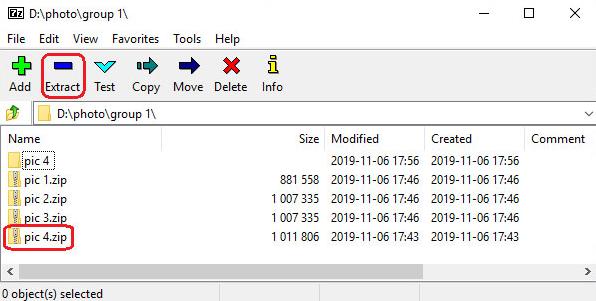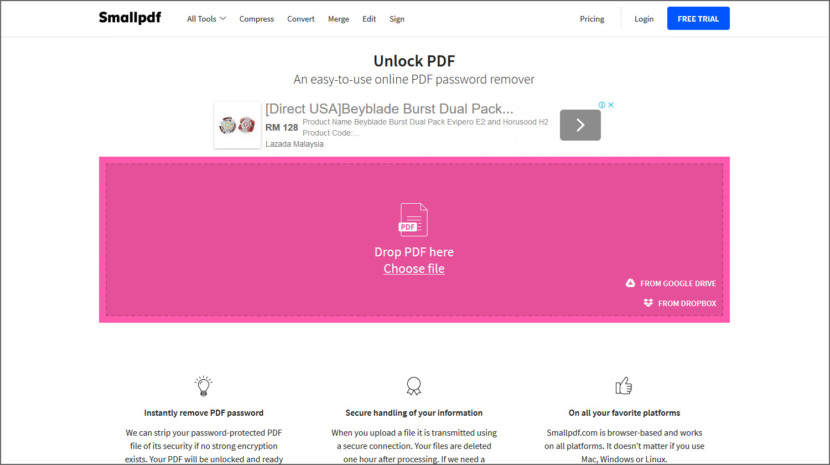Logging on to Facebook without a password and email can be a valuable skill to have, especially if you’ve forgotten your login credentials or if you want to access someone’s account (with their permission, of course). In this blog post, we will explore various methods that can help you log on to Facebook without using a password and email. These methods are intended for informational purposes only and should not be used for any malicious activities.
Video Tutorial:
Why You Need to Log on to Facebook without Password and Email
There are several reasons why you might find yourself needing to log on to Facebook without a password and email. Some of these reasons include:
1. Forgotten Password: You may have forgotten your Facebook password and don’t have access to the email associated with your account.
2. Forgotten Email: Similarly, you might have forgotten the email address linked to your Facebook account, making it difficult to recover your password.
3. Account Recovery: If someone close to you has passed away and you need to access their Facebook account for sentimental reasons or to inform their online friends about their passing.
4. Account Management: As a social media manager or an individual responsible for managing multiple Facebook accounts, you might need a way to log in without needing individual passwords and emails.
Now, let’s explore some methods that can help you log on to Facebook without the need for passwords and emails.
Method 1: Facebook Account Recovery
Facebook provides a built-in account recovery feature that can help you regain access to your account even if you have forgotten your password and email. Here’s how you can use this method:
1. Visit the Facebook login page and click on the “Forgot Password?” link.
2. You will be prompted to enter an email, phone number, or username associated with your account. Since you don’t have access to these, click on the “No longer have access to these?” link.
3. Facebook will then ask you for an email address or phone number where they can reach you to help with the account recovery process. Enter a valid email address or phone number that you currently have access to.
4. Facebook will send a confirmation code to the provided email address or phone number. Enter this code on the recovery page to verify your identity.
5. Once your identity is confirmed, Facebook will prompt you to set a new password for your account.
6. After setting a new password, you can log in to your Facebook account using the new credentials.
Pros:
– Convenient and easy to use.
– Gives you a secure way to recover your account without relying on passwords and email.
– Provides multiple options to verify your identity.
Cons:
– Requires access to a valid email address or phone number.
– May take some time to receive the confirmation code, causing a delay in the account recovery process.
Method 2: Trusted Contacts
Trusted Contacts is another feature provided by Facebook that allows you to regain access to your account without using a password and email. This method involves selecting friends as trusted contacts who can help you in case you get locked out of your account. Here’s how to use this method:
1. Visit the Facebook login page and click on the “Forgot Password?” link.
2. Enter an email, phone number, or username associated with your account. Since you don’t have access to these, click on the “No longer have access to these?” link.
3. Facebook will then ask you for an email address or phone number where they can reach you to help with the account recovery process. Instead, click on the “Trusted Contacts” link.
4. You will be prompted to select three to five friends who you trust and who can help you in case you get locked out of your account. Choose your trusted contacts wisely.
5. Once you have selected your trusted contacts, Facebook will send each of them a security code. Contact your trusted contacts and ask them to provide you with the codes.
6. Enter the security codes provided by your trusted contacts on the recovery page.
7. Facebook will then ask you to set a new password for your account. Set a strong and unique password that you can remember.
8. Once your new password is set, you can log in to your Facebook account using the updated credentials.
Pros:
– Gives you an additional layer of account security.
– Allows you to recover your account without relying on passwords and email alone.
– Provides a way for friends to help you regain access to your account.
Cons:
– Requires the assistance of trusted contacts who may or may not be available or willing to provide the security codes.
– Can be time-consuming to contact and coordinate with multiple trusted contacts.
Method 3: Third-Party Account Recovery Services
In addition to the built-in account recovery options provided by Facebook, there are also third-party account recovery services available. These services specialize in helping users regain access to their accounts when they don’t have access to their passwords and emails. Here’s how you can use a third-party account recovery service:
1. Research and select a reputable third-party account recovery service. Make sure to choose a service that has positive reviews and a track record of successfully recovering accounts.
2. Visit the website of the chosen account recovery service and follow their instructions for submitting an account recovery request.
3. Typically, you will be asked to provide information about your Facebook account, such as your username, previous passwords, and any associated email addresses or phone numbers.
4. The account recovery service will analyze the provided information and attempt to recover your account on your behalf.
5. If successful, the account recovery service will provide you with the new login credentials for your Facebook account.
Note: Be cautious when using third-party account recovery services, as some may be scams or may require you to provide sensitive information that could compromise your account security.
Pros:
– Offers an alternative option when built-in account recovery methods fail.
– Specialized services may have a higher success rate in recovering accounts.
Cons:
– Requires trusting a third party with your account information.
– Not all third-party account recovery services are legitimate.
What to Do If You Can’t Log on to Facebook without Password and Email
If you find yourself unable to log on to Facebook without using a password and email, you can try the following alternatives:
1. Contact Facebook Support: Reach out to Facebook support directly and explain your situation. They may be able to assist you in recovering your account using alternative methods.
2. Create a New Account: If all else fails, you can create a new Facebook account using a different email address. However, keep in mind that this will result in the loss of your old account and any associated data.
3. Seek Professional Help: Consider consulting a computer or cyber security professional who may have the expertise to assist you in recovering your Facebook account or accessing it using alternative methods.
Bonus Tips
Here are three bonus tips that can help you in the process of logging on to Facebook without a password and email:
1. Use a Password Manager: Utilize a password manager to securely store your passwords and avoid forgetting them in the first place. This can prevent the need for account recovery methods altogether.
2. Enable Two-Factor Authentication: Enable two-factor authentication for your Facebook account. This adds an extra layer of security and can help protect your account from unauthorized access.
3. Keep Your Contact Information Updated: Regularly update your contact information associated with your Facebook account. This can make the account recovery process smoother in case you ever forget your password or lose access to your email.
5 FAQs
Q1: Can I log on to someone else’s Facebook account without their permission?
A: No, logging on to someone else’s Facebook account without their permission is a violation of their privacy and is against the terms of service of Facebook. Always seek proper authorization and only access accounts that you have explicit permission to use.
Q2: Are the methods mentioned in this blog post legal?
A: The methods mentioned in this blog post are intended for informational purposes only. Whether or not they are legal depends on the specific circumstances and applicable laws in your jurisdiction. It is important to always respect the privacy and security of others and comply with the terms of service of any platform you use.
Q3: Can I recover my Facebook account without having access to the associated email address or phone number?
A: Yes, Facebook provides various methods for account recovery, as outlined in this blog post. While having access to the associated email address or phone number can make the process easier, it is still possible to recover your account without them using methods like Trusted Contacts or third-party account recovery services.
Q4: What can I do to prevent myself from getting locked out of my Facebook account?
A: To prevent yourself from getting locked out of your Facebook account, make sure to keep your login credentials in a safe and easily accessible place. Additionally, regularly update your contact information and enable two-factor authentication for added security.
Q5: How can I contact Facebook support for assistance?
A: To contact Facebook support for assistance, visit the Facebook Help Center and navigate to the appropriate section related to your issue. From there, you can find options for contacting Facebook support, such as through a live chat or email.
Final Thoughts
Logging on to Facebook without a password and email can be a challenging task, but with the methods mentioned in this blog post, you now have several options to explore. Remember to always use these methods responsibly and with proper authorization. If you find yourself unable to regain access to your Facebook account, it is recommended to seek professional help or create a new account with updated security measures to ensure the safety of your personal information.{“@context”:”https://schema.org”,”@type”:”FAQPage”,”mainEntity”:[{“@type”:”Question”,”name”:” Can I log on to someone else’s Facebook account without their permission?”,”acceptedAnswer”:{“@type”:”Answer”,”text”:” No, logging on to someone else’s Facebook account without their permission is a violation of their privacy and is against the terms of service of Facebook. Always seek proper authorization and only access accounts that you have explicit permission to use.”}},{“@type”:”Question”,”name”:” Are the methods mentioned in this blog post legal?”,”acceptedAnswer”:{“@type”:”Answer”,”text”:” The methods mentioned in this blog post are intended for informational purposes only. Whether or not they are legal depends on the specific circumstances and applicable laws in your jurisdiction. It is important to always respect the privacy and security of others and comply with the terms of service of any platform you use.”}},{“@type”:”Question”,”name”:” Can I recover my Facebook account without having access to the associated email address or phone number?”,”acceptedAnswer”:{“@type”:”Answer”,”text”:” Yes, Facebook provides various methods for account recovery, as outlined in this blog post. While having access to the associated email address or phone number can make the process easier, it is still possible to recover your account without them using methods like Trusted Contacts or third-party account recovery services.”}},{“@type”:”Question”,”name”:” What can I do to prevent myself from getting locked out of my Facebook account?”,”acceptedAnswer”:{“@type”:”Answer”,”text”:” To prevent yourself from getting locked out of your Facebook account, make sure to keep your login credentials in a safe and easily accessible place. Additionally, regularly update your contact information and enable two-factor authentication for added security.”}},{“@type”:”Question”,”name”:” How can I contact Facebook support for assistance?”,”acceptedAnswer”:{“@type”:”Answer”,”text”:” To contact Facebook support for assistance, visit the Facebook Help Center and navigate to the appropriate section related to your issue. From there, you can find options for contacting Facebook support, such as through a live chat or email.”}}]}





